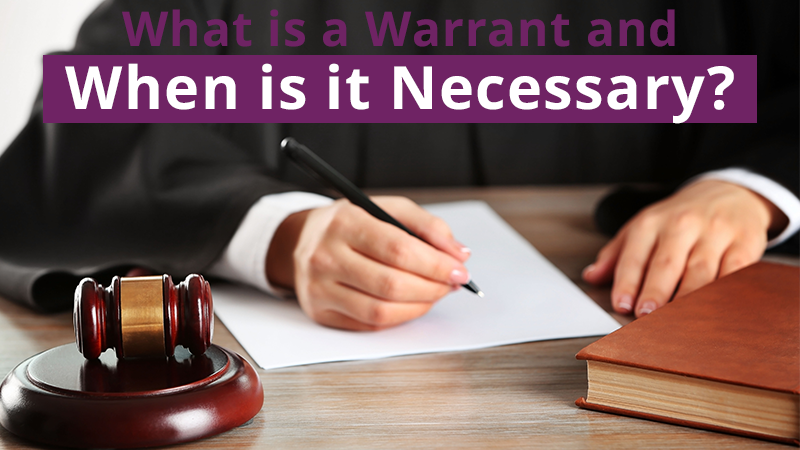
What is a Warrant and When is it Necessary?
Written on March 24, 2017. Posted In Uncategorized
We’ve all seen cop shows on TV when a possible suspect refuses to allow police to search their home because they don’t have a warrant. However, not many of us fully understand what this means in real life. Here’s what you need to know to protect yourself and your property:
Warrant Basics
Under the Fourth Amendment, you are protected against unreasonable searches and seizures. This means that police do not have the right to search your home without probable cause, meaning that they must have reasonable belief that criminal activity is taking place on the property or that evidence of a crime can be found there. In order to legally search your property, the police must have a search warrant issued by a judge. The warrant must clearly state the specific place to be searched, as well as the person or item, if necessary.
When a Warrant Is Needed
While police will need a warrant to search in most cases, there are some exceptions:
- Items that are in plain sight
- If you give your permission
- If you have been placed under arrest – police have the right to search your person and your immediate surroundings for weapons, contraband and other evidence
- If there is an immediate concern for public safety or the safety of the police officers themselves
Warrants Gone Wrong
When conducting a search, there are specific restrictions that the officers must abide. First of all, they must only search the area specified by the warrant. For example, if the warrant permits them to search the suspect’s home, they may not also search that person’s place of work, unless it is a home office. The officers must also only search in areas where the specified target is likely to be. In the case of searching for a person, officers would not be permitted to open someone’s sock drawer or medicine cabinet, as a person could not reasonably fit in those areas.
If you think that a police officer may have violated the terms of a search warrant, an attorney can help. An attorney may be able to get any illegally seized evidence thrown out in court so that it cannot be used against you. Your attorney may even be able to get your case dropped entirely.
Get Out of Jail with Free at Last Bail Bonds
If you find yourself on the wrong side of the law, Free at Last Bail Bonds can help you to regain your freedom as quickly as possible. Rather than paying the full bail amount, we allow you to pay just a portion of that balance, on the condition that you appear at your scheduled court dates. This can help you get out of jail quicker, especially if money is tight. Call us today at 404-577-BAIL(2245) to be reunited with your loved ones right away.

